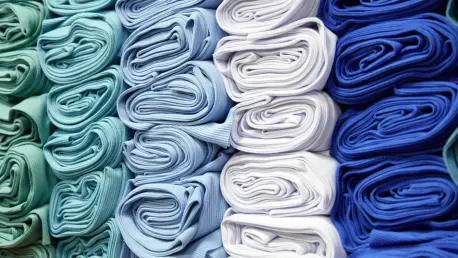Pakistan’s textile sector is facing significant challenges due to relentless cost inflation and heightened competition in the global textile market. Business leader and former President of the Islamabad Chamber of Commerce and Industry (ICCI), Dr. Shahid Rasheed Butt, highlights the industry’s growing struggle with increased business costs, primarily driven by its dependence on expensive imported cotton. Unlike in the past, when Pakistan was a cotton-exporting country, the nation now imports billions of dollars’ worth of cotton annually. This shift has led to reduced profit margins and jeopardized the sustainability of textile operations. Dr. Butt notes that issues within the textile industry and among exporters are escalating, resulting in the closure of several units and significant job losses.
During the first nine months of the current fiscal year, Pakistan imported over $3 billion worth of cotton, a notable increase from $1.93 billion during the same period the previous year. In contrast, textile exports amounted to $13.6 billion, up from $12.44 billion in the same period last year. Dr. Butt attributes the decline in cotton production to a shift in farmers’ interests towards sugarcane cultivation, driven by various factors. Despite surplus sugar production, the government incurs significant subsidies to facilitate sugar exports annually. This situation highlights the need for a fine balance between different agricultural sectors.
Dr. Butt emphasizes that the situation could improve if cotton farmers were incentivized to meet national cotton demands by reducing sugarcane production. However, due to the strong influence of the sugar mafia, no government has taken measures against their interests, leading to substantial financial losses from cotton imports and sugar exports. This analysis points to the urgent need for policy interventions that support the cotton industry while addressing the economic inefficiencies caused by current agricultural practices. Without strategic reforms focused on reviving cotton production, Pakistan’s textile sector risks losing its competitive edge and enduring further economic setbacks.
Strategic Reforms Needed
Pakistan’s textile sector is struggling with soaring costs and fierce global competition. According to Dr. Shahid Rasheed Butt, a prominent business leader and former President of the Islamabad Chamber of Commerce and Industry (ICCI), the industry faces escalating business expenses due to its reliance on pricey imported cotton. Once a cotton-exporting nation, Pakistan now imports cotton worth billions annually, squeezing profit margins and threatening the sustainability of textile operations. Consequently, multiple textile units have shut down, leading to significant job losses.
In the first nine months of the current fiscal year, Pakistan imported over $3 billion in cotton, up sharply from $1.93 billion in the same period the previous year. Meanwhile, textile exports grew to $13.6 billion from $12.44 billion the previous year. Dr. Butt attributes the declining cotton production to farmers switching to sugarcane cultivation, spurred by various factors. Despite plentiful sugar production, the government funds large subsidies to export sugar each year, underscoring the need for balanced agricultural policies.
Dr. Butt suggests incentives for cotton farmers to meet national demands, potentially reducing sugarcane cultivation. However, the powerful sugar mafia stymies government action, causing significant financial losses from cotton imports and subsidized sugar exports. There’s an urgent need for policy reforms to support cotton production, ensuring the textile sector remains competitive and economically viable. Without strategic changes, Pakistan’s textile sector could face further economic challenges.









